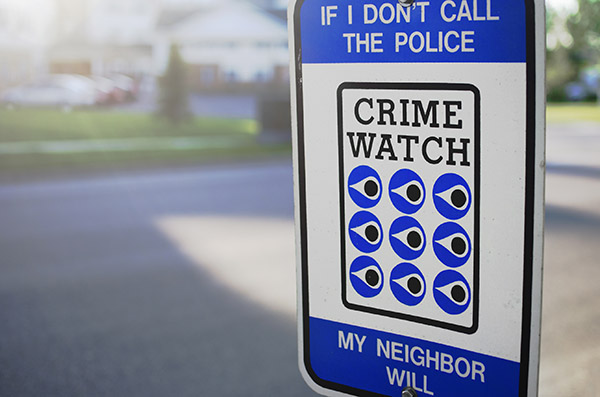Heat, Crime, and Climate Change
For many people, summer can bring leisurely afternoons, swimming pools, and school vacations. It also brings increased crime rates — a phenomenon that is both well observed (particularly in impoverished communities), and still poorly understood.

Warmer temperatures are associated with increased crime. Will global warming amplify the trend? (Visual by iStock.com)
Crime rates vary from year to year, of course, and some crimes, like car burglaries, are consistent regardless of the season. But data suggests that rates of violent crime do tend to rise in the warmer months. In 2014, for example, the Department of Justice analyzed victim reports from 1993 to 2010, finding spikes in reporting for several crime categories — including rapes, sexual assaults, “violence involving a weapon,” and “violence resulting in serious injury.” Less serious crimes like robbery also peaked during the summer, but not as significantly.
Psychologists and social scientists don’t have a clear answer about why this trend exists, but one consistent school of thought blames the heat. “Hot temperatures increase aggression by directly increasing feelings of hostility and indirectly increasing aggressive thoughts,” wrote Craig A. Anderson, director of the psychology department at Iowa State University, in a paper published in 2001.
Other researchers theorize that it’s not simply heat that drives crime, but the social dynamics created by the heat. Warm weather drives people out of their homes and into the streets, where they might be more likely to get into a fight, rob a house, or mug someone. This is called “Routine Activities Theory” — the idea that crime doesn’t typically happen in isolation, and is often driven by the presentation of opportunity. Heat, the theory goes, creates more opportunities.
Whatever the precise mechanism, if heat and crime rates are related, a logical and somewhat worrying question naturally follows: On a planet beset by climate change, will more heat mean more crime?
That’s exactly what two professors at Southern Illinois University set out to explore in a paper published this spring. The analysis examined the relationship between temperature and crime rates in 57 countries across the globe. The study found that, on average, each additional degree Celsius increase in annual temperatures was associated with a roughly 6 percent increase in homicides. Notably, the relationship varied dramatically by region.
“Africa had really strong temperature effect — a 17 percent increase in homicides [with each degree of temperature rise] according to our data,” said Dennis Mares, a criminal justice professor at Southern Illinois University Edwardsville and one of the study’s authors. “In Europe, there was no significant effect.”
With global income equality rising right alongside steady increases in average temperatures, that would seem cause for concern. And according to Mares, the trend is consistent with other research suggesting that poorer communities bear a disproportionate burden when temperatures go up. In 2013, Mares published a study looking at almost 20 years of data for clues in how shifts in temperature each month impacted crime rates in St. Louis. Again, the effect varied by neighborhood: The more disadvantaged the community, the more violence appeared to be influenced by the heat.
Mares believes there’s a simple explanation. In wealthy neighborhoods, it’s easy to find shelter from hot temperatures — either in a cooled-off home, or shops, restaurants, and community centers with air conditioning. But if you live in a disadvantaged neighborhood — or impoverished country — it’s likely much harder to find relief.
“If you’re poor, you’re not running the air conditioning — maybe you don’t even have air conditioning,” Mares said. “And that may mean you get more aggressive, or it may mean that you get driven out of your house because it’s too hot.”











Comments are automatically closed one year after article publication. Archived comments are below.
Science gave us germ warfare and fracking and only agrees climate change is real and happening NOT as real as “smoking causing cancer” after 35 years of debate and climate action failure. Be happy it wasn’t a real crisis and stop fear mongering!